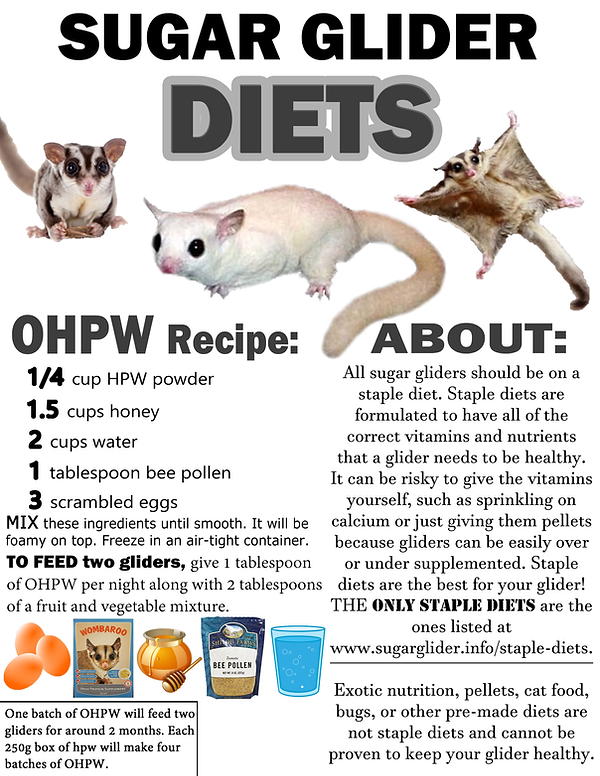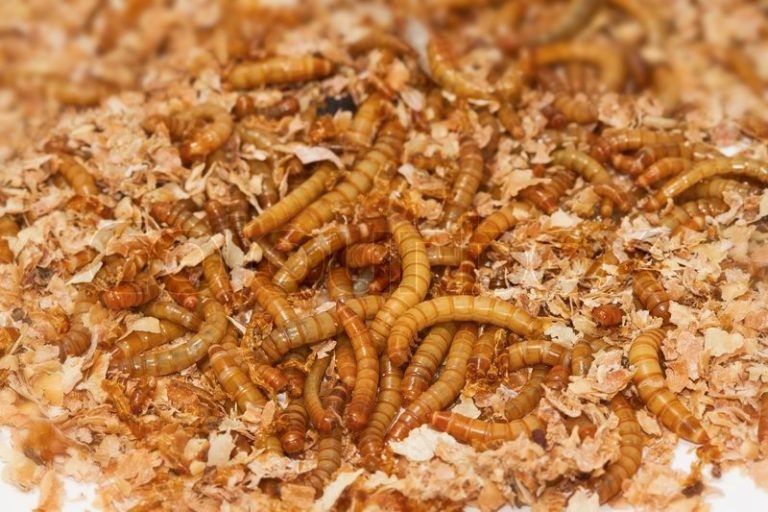Bml Diet For Sugar Gliders
The BML diet (also known as the Balanced Leaf and Mealworm diet) is a popular diet for sugar gliders. It is a nutritionally balanced diet that provides all the necessary nutrients for these adorable and energetic little marsupials. In this article, we will delve into the details of the BML diet for sugar gliders and discuss its benefits, ingredients, and proper feeding guidelines.
What is the BML Diet?
The BML diet is a homemade diet that was developed by Peggy Brewer. It consists of a balanced mixture of fruits, vegetables, proteins, and supplements. This diet aims to provide sugar gliders with all the necessary nutrients to ensure their overall health and well-being. The BML diet is considered to be a healthier alternative to commercial pellet-based diets, which often lack the variety and natural ingredients required by sugar gliders.
The Benefits of the BML Diet
The BML diet offers several benefits for sugar gliders compared to other diets. Here are some of the key advantages:
1. Nutritional Balance: The BML diet provides a balanced combination of proteins, fruits, vegetables, and supplements, ensuring that sugar gliders receive all the essential nutrients they need for optimal health.
2. Variety: The BML diet includes a wide range of fruits and vegetables, promoting dietary diversity. This variety helps to ensure that sugar gliders receive a broad spectrum of vitamins and minerals.
3. Natural Ingredients: Unlike commercial pellet-based diets that often contain synthetic ingredients, the BML diet utilizes fresh and natural ingredients, which is closer to their natural diet in the wild.
4. Digestive Health: The BML diet includes ingredients that support the digestive health of sugar gliders, such as bee pollen and yogurt, which contain probiotics that aid in digestion.
5. Behavioral Stimulation: Preparing and offering the BML diet provides mental stimulation for sugar gliders, as they can forage, taste, and select their preferred fruits and vegetables. This helps to mimic their natural foraging behaviors.

The Ingredients of the BML Diet
The BML diet requires a combination of specific ingredients to provide the necessary nutrients for sugar gliders. Here are the main ingredients:
1. Proteins: The BML diet includes a protein source such as scrambled eggs, chicken baby food, or powdered soy protein. These proteins are essential for muscle development and growth.
2. Fruits and Vegetables: The BML diet incorporates a variety of fresh fruits and vegetables, including apples, grapes, carrots, sweet potatoes, and leafy greens. These provide essential vitamins, minerals, and fiber.
3. Supplements: To ensure that sugar gliders receive all the necessary nutrients, the BML diet requires the use of supplements such as calcium, vitamin D3, and a multivitamin powder specifically formulated for sugar gliders.
Feeding Guidelines for the BML Diet
When feeding sugar gliders the BML diet, it is important to follow these guidelines to ensure their health and well-being:
1. Proportions: The BML diet follows a specific ratio of 2:2:1, which means two parts fruits, two parts vegetables, and one part protein.
2. Freshness: Use fresh and high-quality ingredients to maximize nutritional value. Avoid using canned or processed foods as they may contain preservatives or additives.
3. Variety: Rotate the fruits and vegetables to provide a variety of nutrients and flavors. This helps to prevent boredom and ensures a balanced diet.
4. Supplements: Follow the recommended dosage for the supplements. Over-supplementing can be harmful to sugar gliders, so it is crucial to adhere to the recommended guidelines.
5. Water: Provide fresh water in a shallow dish or a water bottle to keep sugar gliders hydrated. Change the water daily to prevent contamination.
6.Transition Period: If you are switching your sugar gliders from a different diet to the BML diet, it is important to do so gradually to prevent digestive upset. Slowly introduce the BML diet over a period of one to two weeks.
7. Consult a Vet: It is always a good idea to consult with a veterinarian who specializes in sugar glider care to ensure that you are providing the best diet for your pets. They can provide personalized advice and address any specific concerns you may have.
Frequently Asked Questions
1: Can I modify the BML diet to suit my sugar glider’s preferences or dietary needs?
While some modifications can be made to accommodate individual gliders, it is important to maintain the overall nutritional balance of the BML diet. Take into consideration any specific dietary restrictions or health conditions that your sugar glider may have and consult with a vet for guidance.
2: How often should I feed my sugar gliders the BML diet?
The BML diet should be offered to sugar gliders every evening, as they are nocturnal animals. Remove any uneaten food in the morning to prevent spoilage.
3: Can I mix the BML diet with other diets or treats?
It is generally not recommended to mix the BML diet with other diets, as it can disrupt the nutritional balance. However, you can occasionally offer treats such as mealworms or small amounts of fresh fruit as a supplement to the BML diet.
Final Thoughts
The BML diet for sugar gliders offers a nutritionally balanced alternative to commercial pellet-based diets. It provides a variety of fresh fruits, vegetables, proteins, and supplements, ensuring that sugar gliders receive all the necessary nutrients for optimal health. Remember to consult a veterinarian who specializes in sugar glider care for personalized advice and guidance on implementing the BML diet for your pets. By providing your sugar gliders with a proper diet, you are contributing to their overall well-being and ensuring that they live a happy and healthy life.







